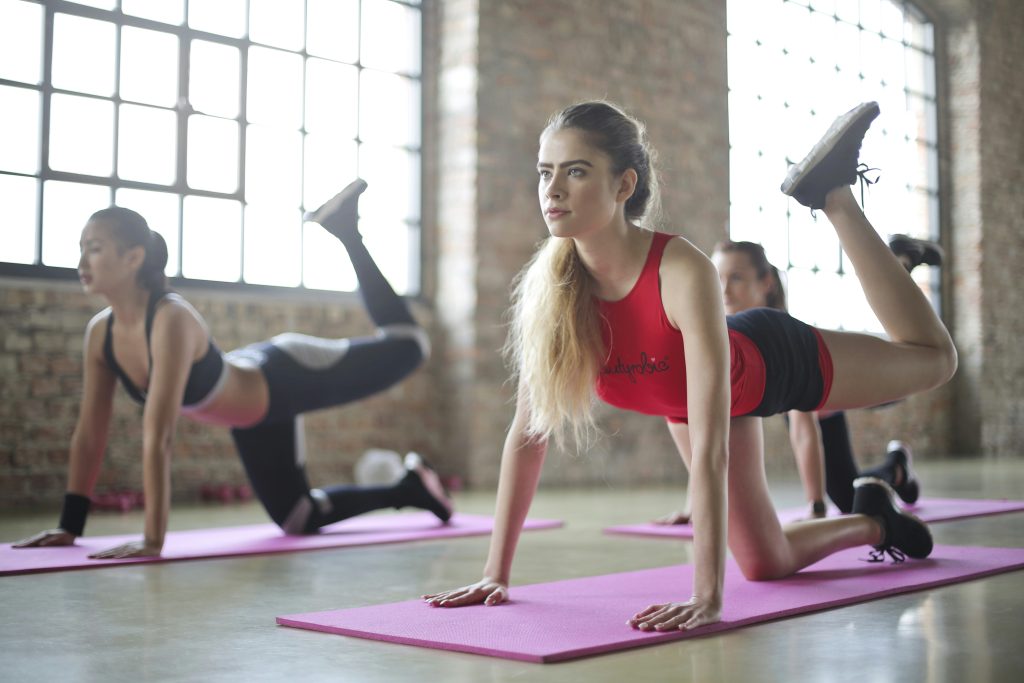If you’re looking to amp up your ab workouts and strengthen your core, resistance bands might just be the perfect addition to your routine. Building six pack abs and strong core muscles is a goal many people aspire to achieve, but it often comes with questions. Can I use resistance bands to enhance my ab workouts? The answer is a resounding yes! In fact, incorporating resistance bands into your ab exercises can provide added resistance, increase engagement of your muscles, and help you target those hard-to-reach areas more effectively. So, grab your resistance bands and get ready to take your ab workouts to the next level!
Benefits of using resistance bands for ab workouts
Increased muscle activation
When it comes to ab workouts, using resistance bands can significantly increase muscle activation. The elastic nature of resistance bands creates continuous tension throughout the movement, making your abs work harder. This increased muscle activation leads to more effective and efficient ab workouts, helping you achieve your desired results faster.
Versatility
One of the greatest advantages of resistance bands is their versatility. They can be used to target various muscle groups, including the abs. With resistance bands, you can perform a wide range of ab exercises that target different areas of your core. Whether you want to focus on your upper abs, lower abs, or obliques, there is a resistance band exercise for you.
Portability and convenience
Resistance bands are incredibly portable and convenient, making them a perfect addition to your ab workout routine. Unlike bulky exercise equipment, resistance bands can easily fit into your bag or suitcase, allowing you to exercise anytime and anywhere. Whether you’re traveling, at home, or in the gym, resistance bands provide an accessible and effective way to work your abs.
Best resistance band exercises for abs
Standing twist with resistance band
The standing twist is a fantastic exercise for targeting your obliques and strengthening your core. To perform this exercise with a resistance band, start by standing with your feet shoulder-width apart and the band wrapped around your midsection. Hold the band with both hands in front of your chest. Twist your torso to one side while keeping your hips facing forward, then return to the starting position. Repeat the movement on the other side. This exercise effectively engages your obliques and helps improve rotational strength.
Wood chopper with resistance band
The wood chopper exercise is excellent for targeting your entire core, including your abs, obliques, and lower back. Start by attaching the resistance band to a sturdy anchor point above your head. Stand with your feet shoulder-width apart, and hold the band with both hands above one shoulder. Engage your core muscles and twist your torso while pulling the resistance band diagonally across your body (like swinging an axe). Perform the movement in a controlled manner and feel the contraction in your abs and obliques. Repeat on the other side.
Russian twist with resistance band
The Russian twist is a classic ab exercise that can be taken to the next level with the use of a resistance band. Sit on the floor with your knees bent and feet flat on the ground. Hold the resistance band in both hands and extend your arms in front of you. Lean back slightly while keeping your back straight and engage your core. Twist your torso to one side, bringing the resistance band to the side of your body, and then twist to the other side. This exercise targets your obliques and strengthens your core stability.

Tips for using resistance bands effectively for ab workouts
Choose the right resistance level
When using resistance bands for ab workouts, it’s crucial to choose the right resistance level. The resistance should be challenging enough to engage your muscles but not so intense that it compromises your form or leads to muscle strain. If you’re a beginner, start with a lighter resistance band and gradually increase the intensity as you build strength.
Maintain proper form
To get the most out of your resistance band ab workouts, it’s essential to maintain proper form throughout each exercise. Engage your core muscles, keep your back straight, and focus on the target muscle group. Avoid using momentum or relying solely on the resistance band’s pull. By maintaining proper form, you’ll ensure that your abs are effectively and safely targeted.
Gradually increase resistance
As your ab muscles grow stronger, it’s important to gradually increase the resistance of your bands to continue challenging your muscles and promoting growth. Start with a light resistance band and, as you feel comfortable, move on to a medium or heavy resistance band. Progression is key to maximizing the benefits of resistance band ab workouts.
Sample resistance band ab workout routine
Warm-up: Marching in place with resistance band
Before diving into your resistance band ab workout, it’s crucial to warm up your muscles to prevent injury and improve overall performance. Start by placing the resistance band around your ankles. Stand with your feet hip-width apart and march in place, raising your knees as high as possible while maintaining tension on the band. Perform this warm-up exercise for about 2 minutes to get your blood flowing and prepare your core for the upcoming workout.
Exercise 1: Standing twist with resistance band – 3 sets of 12 reps
For this exercise, stand with your feet hip-width apart and hold the resistance band with both hands in front of your chest. Twist your torso to one side, keeping your hips stationary, and then return to the starting position. Perform 12 repetitions on each side, alternating between left and right twists, for a total of 3 sets. Focus on engaging your oblique muscles and maintaining controlled movements throughout.
Exercise 2: Wood chopper with resistance band – 3 sets of 10 reps
To perform the wood chopper exercise with a resistance band, anchor the band above your head. Stand with your feet hip-width apart, grab the band with both hands above one shoulder, and engage your core muscles. Swing your hands down and across your body in a diagonal chopping motion, feeling the contraction in your abs and obliques. Perform 10 repetitions on each side, alternating between left and right diagonals, for a total of 3 sets.
Exercise 3: Russian twist with resistance band – 3 sets of 15 reps
Sit on the floor with your knees bent and feet flat on the ground. Hold the resistance band in both hands and extend your arms in front of you. Lean back slightly, engage your core, and twist your torso from side to side, bringing the resistance band to the side of your body with each twist. Aim for 15 repetitions on each side, alternating between left and right twists, for a total of 3 sets. Focus on maintaining control and feeling the burn in your obliques.
Cool-down: Stretching with resistance band
After completing your resistance band ab workout, it’s important to cool down and stretch your muscles to improve flexibility and aid in recovery. Use the resistance band to perform various stretching exercises, such as hamstring stretches, chest stretches, and shoulder stretches. Hold each stretch for 20-30 seconds and breathe deeply to promote relaxation and recovery.

Common mistakes to avoid when using resistance bands for ab workouts
Using too much resistance
One common mistake when using resistance bands for ab workouts is using a resistance level that is too challenging. While it’s important to challenge your muscles, using too much resistance can lead to improper form, which decreases the effectiveness of the exercise and increases the risk of injury. Gradually increase the resistance level as your strength improves, and always prioritize proper form over intensity.
Neglecting proper breathing
Breathing plays a crucial role in any workout, including resistance band ab exercises. It’s important to synchronize your breath with the movements to ensure proper oxygen flow and muscle engagement. Exhale during the most challenging part of the exercise, such as when twisting or contracting your abs, and inhale during the release or return to the starting position. Neglecting proper breathing can compromise your form and hinder your overall performance.
Not using a full range of motion
To fully engage your ab muscles and maximize the benefits of resistance band exercises, it’s essential to use a full range of motion. Avoid cutting the movements short or relying solely on the resistance band’s pull. Instead, focus on controlled and deliberate movements that allow your muscles to fully stretch and contract. Using a full range of motion ensures that all fibers of your abs are effectively targeted and activated.
Incorporating resistance bands into your existing ab workout routine
Adding resistance to traditional ab exercises
If you already have an ab workout routine, incorporating resistance bands can add a new level of challenge and intensity. For example, you can add resistance bands to exercises like crunches, leg raises, or planks by placing the band around your feet or thighs. The added resistance will engage your muscles even more, helping you make progress in your fitness journey.
Substituting resistance band exercises for traditional ab exercises
Resistance band exercises can be an excellent substitute for traditional ab exercises, especially if you have limited equipment or space. For instance, instead of doing traditional sit-ups, you can perform Russian twists with a resistance band to target your abs, obliques, and core stability. Experiment with different resistance band exercises and find the ones that work best for you and your fitness goals.
Combining resistance band exercises with bodyweight exercises
To create a well-rounded ab workout, consider combining resistance band exercises with bodyweight exercises. This combination allows you to target different muscle groups, challenge your core from various angles, and keep your workouts interesting and engaging. For example, you can alternate between resistance band wood choppers and bodyweight planks for a comprehensive core workout.

Other equipment and methods for enhancing ab workouts
Dumbbells
In addition to resistance bands, dumbbells can be a valuable addition to your ab workouts. Adding resistance with dumbbells can increase the intensity and challenge of certain exercises, such as Russian twists or standing oblique crunches. Start with lighter dumbbells and gradually increase the weight as you build strength and improve your form.
Medicine balls
Medicine balls are another effective tool for enhancing ab workouts. They provide additional resistance and can be used for exercises like Russian twists, seated oblique twists, or medicine ball crunches. The weight of the medicine ball engages your core muscles and adds an extra level of challenge to your ab routine.
Suspension trainers
Suspension trainers, such as TRX bands, offer a unique way to work your abs and increase the difficulty of your workouts. By leveraging your body weight and the instability of the suspension trainer, you can perform exercises like suspension plank pikes or suspended knee tucks to target your abs and strengthen your core. Suspension trainers provide a dynamic and engaging workout for your entire body, including your abs.
Safety considerations when using resistance bands for ab workouts
Inspect the resistance band before each use
Before starting your ab workout, it’s important to inspect your resistance band for any signs of wear or damage. Check for any tears, fraying, or weak points in the band. If you notice any damage, replace the band immediately to prevent accidents or injuries during your workout. Additionally, ensure that the resistance band is securely attached to any anchor points to avoid sudden release or snapping.
Start with lighter resistance bands if you are a beginner
If you’re new to resistance band training, it’s recommended to start with lighter resistance bands to allow your muscles to adapt and avoid overexertion. As you progress and become comfortable with the exercises, you can gradually increase the resistance level to continue challenging yourself and promoting muscle growth.
Listen to your body and stop if you experience pain or discomfort
It’s essential to listen to your body during resistance band ab workouts. If you experience any pain, discomfort, or unusual sensations, stop the exercise immediately. Pushing through pain can lead to further injury or strain on your muscles. Pay attention to proper form, be mindful of your body’s limitations, and always consult with a healthcare professional if you have any concerns or pre-existing conditions.

Conclusion
Incorporating resistance bands into your ab workout routine can greatly enhance the effectiveness and versatility of your workouts. The benefits of using resistance bands for abs include increased muscle activation, versatility, and portability. By performing the best resistance band exercises for abs, maintaining proper form, and gradually increasing resistance, you can effectively target your core muscles and achieve your fitness goals. Remember to avoid common mistakes, such as using too much resistance or neglecting proper breathing, and consider incorporating other equipment and methods, like dumbbells or medicine balls, to further enhance your ab workouts. Finally, prioritize safety by inspecting your resistance bands, starting with lighter bands if you’re a beginner, and listening to your body to prevent injuries and ensure a successful and enjoyable workout experience.





